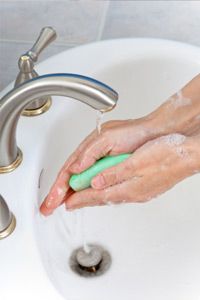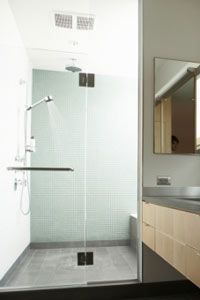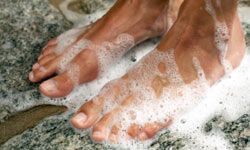For a long time, when it came to personal cleanliness, there was only one frontline fighter: bar soap. Of course, bar soap came in many guises -- square bars and rounded bars, scented and unscented, clear and opaque -- but its essential look and function went unchanged for hundreds of years. Then other cleansers -- both soap and non-soap formulas -- began to appear. Bar cleansers were joined by liquid products, which were first used primarily for hand washing. The market eventually became flooded with shower gels, also known as body washes, which quickly became a popular alternative to bar soap.
If you've spent any time in the skin care aisle at your local store, you know that figuring out which products to buy, soap and non-soap cleansers included, can be a very time-consuming task. So which is better -- bar soap or liquid soap? You might be relieved to know that at a very basic level there is no real difference between the two. All types of true soap are composed of the same essential components -- alkali salts of fatty acids and detergent properties [source: U.S. Food and Drug Administration]. The detergent in soap, which is called a surfactant, allows oil and dirt to mix with and be washed away by water [source: Cosmetics Info].
Advertisement
Like so many health and beauty products, there are advantages and disadvantages to both bar soap and liquid soap. One of the main complaints about bar soap is that it washes away more than just dirt. Harsh bar soaps can deplete your skin of the moisture it needs to stay healthy. Liquid soaps, on the other hand, often contain moisturizers, but they're also more likely to have fragrances and other additives that can make sensitive skin crawl [source: Bruno].
If you're thrifty, you may find that bar soap is friendlier to your pocketbook than liquid soap [source: Bartels]. However, if you're not too fond of the slimy mess bar soap can leave in your soap dish, you might think liquid soap is worth the extra cost.
Over the last few years, a debate has flared up over which is better: stalwart bar soap or showy shower gel. Before you choose sides, keep reading to learn more about the main contenders.
Advertisement


